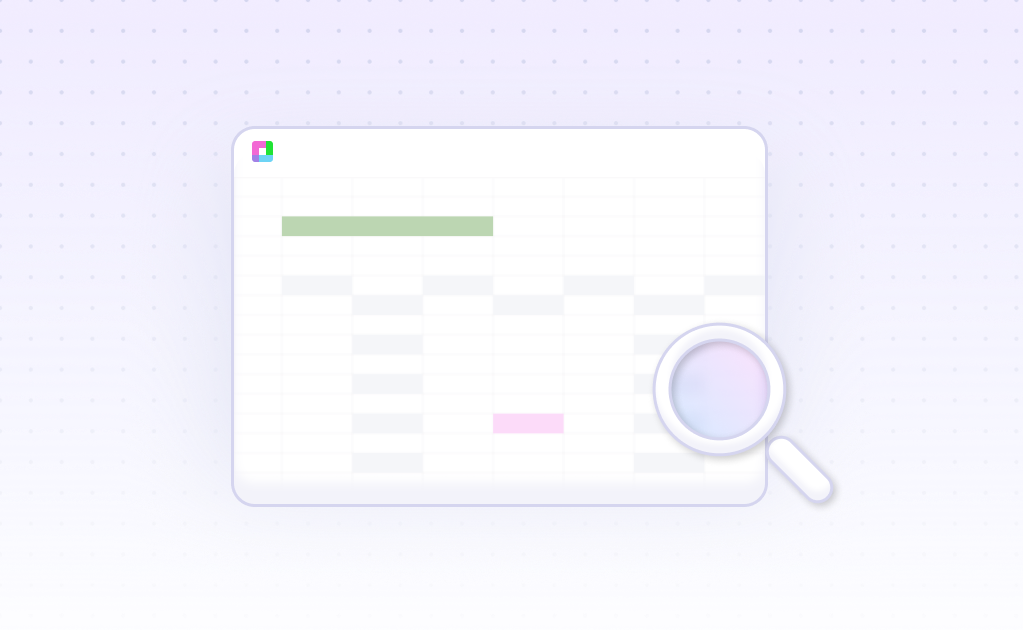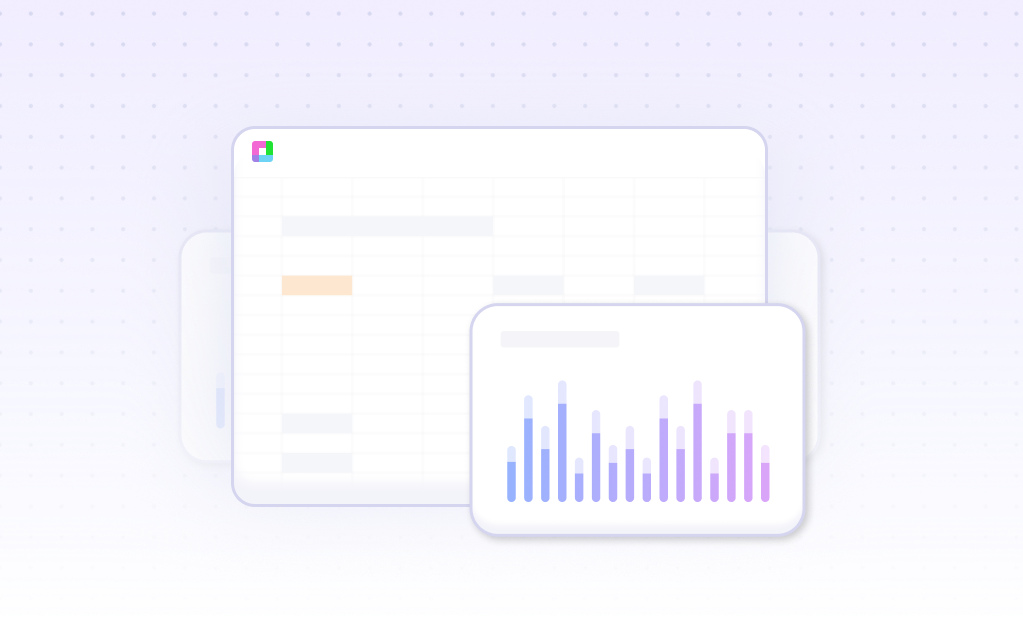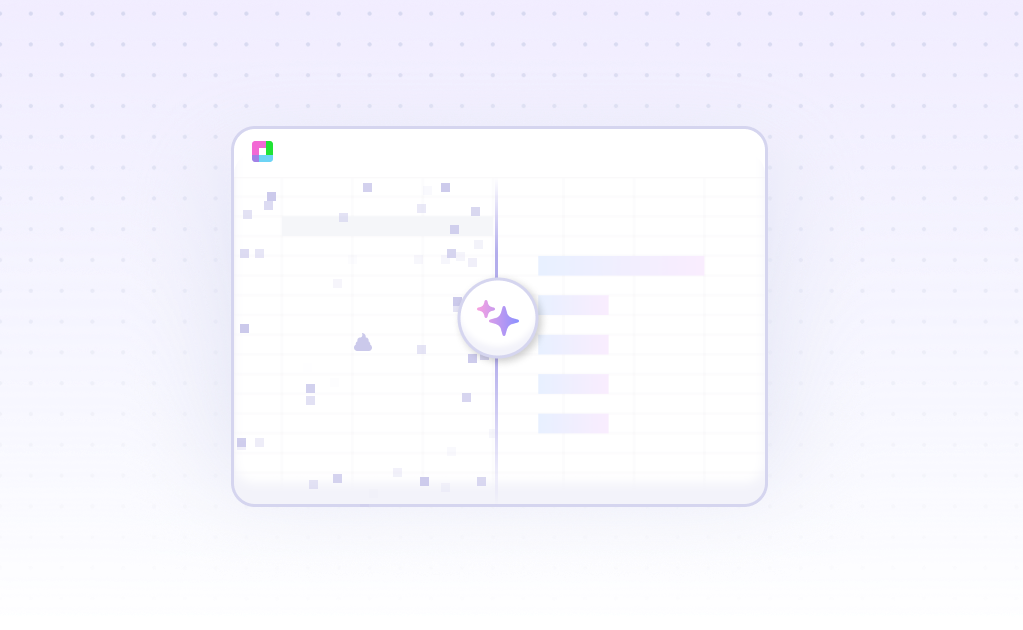
Introduction
Training needs analysis helps organizations identify critical skills and knowledge gaps through systematic assessment of employee capabilities. While traditionally conducted using Excel templates by learning and development teams, modern AI tools now offer more efficient alternatives. Sourcetable, an AI-powered spreadsheet platform, streamlines the analysis process by combining data visualization, real-time collaboration, and automated insights. This comprehensive tool helps practitioners gather insights, strategize effectively, and prepare for complex assessments without requiring advanced Excel expertise. Learn how Sourcetable enables ethical needs analysis through its innovative AI capabilities.
Why Sourcetable Is Superior for Ethical Needs Analysis
Sourcetable's AI-powered capabilities transform ethical needs analysis in supply chains. Unlike Excel's basic pivot tables, Sourcetable processes complex supplier data at high speeds while enabling natural language analysis. This combination of AI and accessibility makes ethical due diligence more thorough and efficient.
Advanced Analysis Capabilities
Sourcetable's predictive analytics assess supplier risks by analyzing historical data to forecast potential ethical issues. The platform's text analytics tools examine unstructured supplier data to reveal ethical concerns that Excel's rigid structure might miss. These AI capabilities ensure more comprehensive supplier assessment than traditional spreadsheet analysis.
Streamlined Workflow
While Excel relies on manually structured source tables and pivot tables for visualization, Sourcetable automates routine analysis tasks. This automation lets analysts focus on strategic ethical decision-making rather than data manipulation. The platform's natural language interface makes complex supply chain analysis accessible to all stakeholders.
Enhanced Risk Detection
Sourcetable's anomaly detection capabilities identify ethical risks in supplier data more effectively than Excel's basic analysis tools. This advanced monitoring helps businesses maintain ethical compliance and address supply chain risks proactively. The platform's AI-driven insights provide deeper understanding of supplier behavior and potential ethical impacts.
Benefits of Ethical Needs Analysis with AI-Powered Spreadsheets
Ethical needs analysis delivers measurable business value. Companies with strong ethical practices outperform large-cap indices by 7.1%. Organizations that prioritize ethics attract top talent, build customer loyalty, and earn public respect for their brand.
Key Advantages of Ethical Analysis
Implementing ethical codes creates robust internal and external best practices while improving compliance. Companies gain enhanced reputation management, conflict resolution protocols, and demonstrated social responsibility. This attracts ethically-minded customers and drives tangible returns through investments in people, culture, and community.
Streamlined Analysis with AI Tools
Modern AI-powered spreadsheet platforms enhance ethical analysis through automated insights and integrated data sources. Advanced tools enable more efficient analysis compared to traditional Excel workflows. Features like natural language processing and automated visualization create comprehensive ethical assessments with reduced manual effort.
Ethical Needs Analysis Examples with Sourcetable
Sourcetable provides comprehensive ethical analysis capabilities through its AI-powered spreadsheet platform. Organizations can conduct ethical needs assessments similar to the documented case study with a Métis community in Saskatchewan, Canada.
Privacy-Preserving Analysis
Sourcetable implements federated learning and privacy-preserving analytics to conduct ethical needs analysis without compromising sensitive data. These features enable powerful AI analysis while maintaining data privacy without central storage requirements.
Bias Detection and Fairness
Advanced AI systems within Sourcetable identify potential biases in data analysis and alert users to fairness concerns. This capability is crucial as 65% of enterprise buyers now include AI ethics criteria in their purchasing decisions.
Ethical Decision Framework
The platform incorporates established ethical decision-making frameworks, including a seven-step guide and additional approaches based on Shaun Taylor's model and Daniel Vallero's six-step methodology. Users receive clear explanations of AI-generated conclusions through built-in transparency mechanisms.
Ethical Use Cases for AI-Powered Needs Analysis with Sourcetable
Fair Data Cleaning and Analysis |
Clean and analyze demographic data using Sourcetable's AI assistant to ensure fair representation across population segments. Generate charts to visualize potential bias in sampling or analysis methods. |
Transparent Formula Documentation |
Document data analysis processes by having Sourcetable's AI write clear formulas and generate explanatory charts. Create audit trails showing how conclusions were reached from raw data. |
Secure Data Integration |
Integrate data from multiple sources while maintaining security protocols. Use Sourcetable's connections to over 100 data sources with appropriate access controls and data protection measures. |
Ethical Decision Support Analysis |
Generate reports and insights that highlight ethical implications of business decisions. Use AI-powered charts and formulas to quantify social impact metrics and compliance factors. |
Frequently Asked Questions
What is ethical needs analysis in Sourcetable?
Ethical needs analysis in Sourcetable is a systematic approach to evaluating data analysis needs while considering five major ethical concerns: source origin/intent, sensitive information handling, the mosaic effect, automated analysis implications, and visibility considerations. It goes beyond legal compliance to ensure responsible data practices when using AI-powered spreadsheet capabilities.
What are the key benefits of performing ethical needs analysis in Sourcetable?
The key benefits include improved company reputation, compliance with federal regulations, protection of consumer information from cybercrime, support for social change initiatives, and safeguarding of vulnerable communities while leveraging Sourcetable's AI capabilities for data analysis.
How do you conduct ethical needs analysis in Sourcetable?
To conduct ethical needs analysis in Sourcetable, you must understand and recognize ethical concepts, explore issues in context, analyze how the AI systems meet needs, evaluate intended and unintended consequences, and integrate responsible data approaches into strategic thinking. This process ensures ethical considerations are built into how you use Sourcetable's AI-powered analysis features.
Conclusion
Training needs analysis is essential for identifying skills gaps and developing effective learning strategies. While Excel templates provide a traditional approach to conducting needs assessments, Sourcetable offers an AI-powered alternative that streamlines the process. Through its integration with over 100 data sources and natural language processing capabilities, Sourcetable accelerates data analysis while maintaining ethical considerations.
To ensure ethical needs analysis, organizations must develop clear codes of ethics, maintain transparency, and conduct regular reviews. Sourcetable's AI assistant helps achieve these goals by providing data-driven suggestions while allowing organizations to maintain control over their analysis process. Try Sourcetable's ethical needs analysis capabilities at sourcetable.com/signup.
Recommended Analysis Guides
Connect your most-used data sources and tools to Sourcetable for seamless analysis.
Frequently Asked Questions
If your question is not covered here, you can contact our team.
Contact Us




